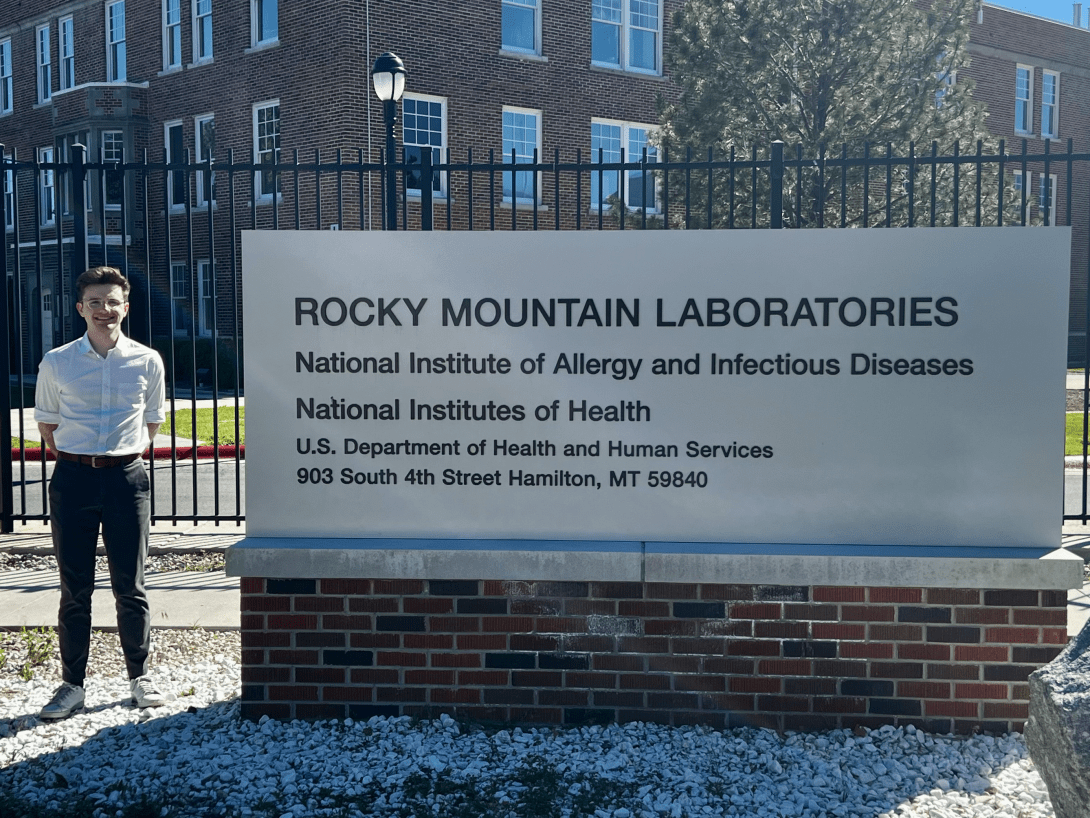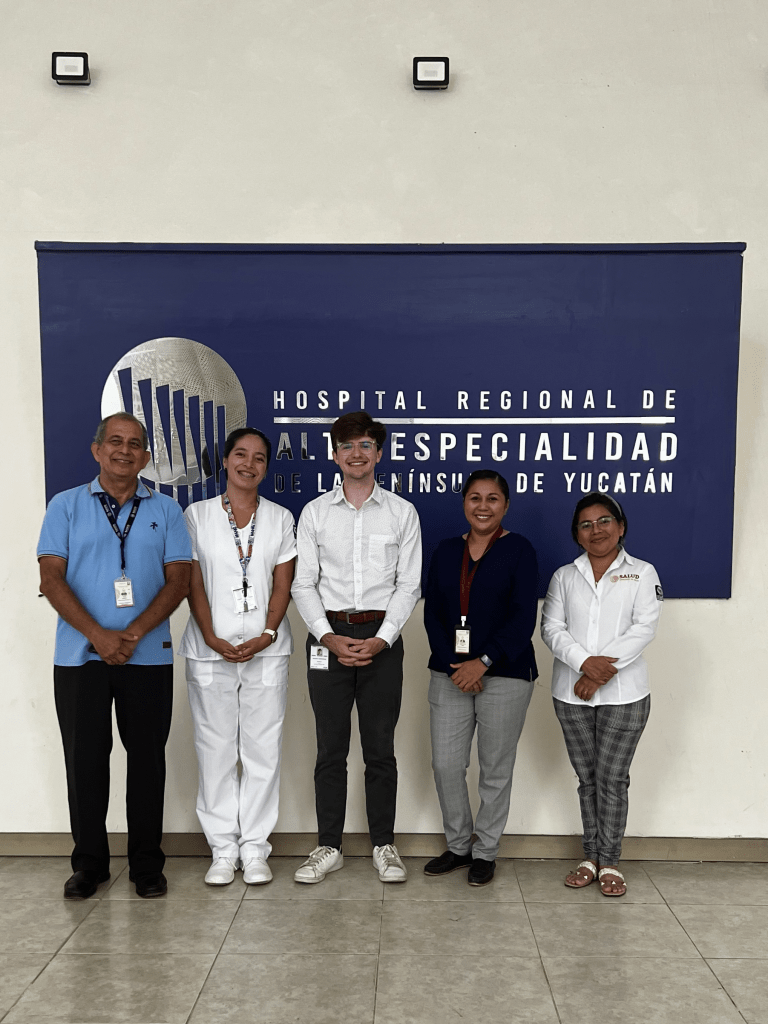Global health experiences: Learn what one student is researching with National Institutes of Health

Rising junior and Lincoln Scholar Nick Keiran is making the most of his Centre College experience.
The Louisville, Kentucky native has always been on a pre-medical school track, while also taking advantage of opportunities abroad like working at a local clinic in Merida, Mexico. Now, he’s taking his talents to Montana and the National Institutes of Health (NIH) through its summer internship program.
“When I arrived at Centre, I didn’t really have a clear sense of direction in terms of how to become a human-centered, community-focused, and globally minded doctor” Keiran said. “I’ve had a lot of great experiences at Centre, though, and those have informed me along the way. The experiences I’ve had and the opportunities I’ve pursued have really prepared me for a career in global health.”
The summer after his freshman year, Keiran had his first public health experience through the Lincoln Scholars Program: He spent five weeks near San Jose, Costa Rica, volunteering at the Foundation for International Medical Relief of Children (FIMRC).

“That experience taught me so much about caring for patients with very few resources, and I came back from FIMRC with a new passion for improving equity and reducing disparities in healthcare — especially between the Global North and the Global South, but also within the United States,” he said.
Keiran is a Biochemistry and Molecular Biology major and will double major in Spanish, in what he calls a “single path toward a future in global health and patient-centered medicine.”
His Global South knowledge expanded during his sophomore year, studying in West Africa in an environmental studies course. Shortly after that study-abroad course, Keiran spent a semester in Merida, Mexico, for an immersive experience where he worked in a public hospital.
Keiran applied to work with the National Institute of Allergy and Infectious Diseases (NIAID) and specifically the Laboratory of Virology. NIAID is one of 27 different NIH locations across the United States, each studying a different area of human health. This summer, he is working in the disease modeling and transmission section of the laboratory of virology.
“Even before the pandemic, I was really interested in infectious diseases,” he said. “The role of infectious diseases in general and viruses in particular on the health of vulnerable populations is enormous. I really want to have the biggest impact I can in my career, and I feel like this aspect of public health is the field I’m meant to work in.”
Keiran is currently working on a project related to the Crimean-Congo Hemorrhagic Fever Virus (CCHFV), the most geographically widespread tick-borne viral disease.
“I really appreciate how the project has allowed me to learn from different people in the lab studying different aspects of CCHFV,” he said. “My family actually has a connection to tickborne diseases. When I was little, my grandpa contracted Rocky Mountain Spotted Fever from a tick bite. He got very, very sick, and it took the doctors quite a bit of time to figure out what was wrong with him — because nobody really expects you to contract RMSF in suburban Louisville. He pulled through, thankfully, and now we both think that it’s pretty cool that I get to study a tickborne disease.”
Aside from work, Keiran said he enjoys being so close to cutting-edge technology with a view of the Rocky Mountains out his office window.
“Working here has made me realize just how collaborative science is when it’s done right, and it’s been great to be part of a team,” he said. “I’ve learned so many new laboratory techniques, how to search for and read scientific papers, and how to pursue research questions. I really can’t overstate just how much I’ve learned from this experience, and I can definitely say that research will be an important part of my future career. I think the COVID-19 pandemic taught us all the importance of having data-driven and science-based public health responses, and I’d love to be a part of that in the future.”
Centre students interested in applying to internship programs and fellowships can contact Robert Schalkoff, Director of the Office of Fellowships.



